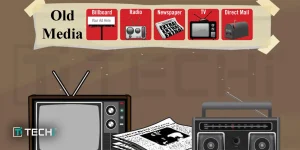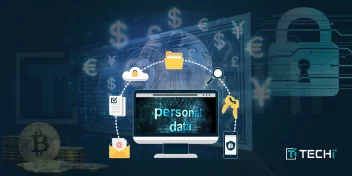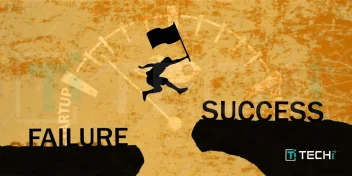Though we have, over the past few years, become accustomed to rather strange, aggressive ideas from those who run the movie and music businesses, the latest move from the RIAA and MPAA is a little astounding.
Today, the Electronic Frontier Foundation, an organization dedicated to defending internet users’ rights, outlined some of the suggestions made by the media conglomerates for protecting their content. They, along with many other players, were asked to weigh in on how intellectual property should be treated in a changing, networked world.
And you know what the MPAA and RIAA suggested? Well, among other things:
- Anti-infringement spyware to be installed on users systems
- Filtering technology on internet service provider’s networks to prevent the spread of copyrighted material
- ‘Inform’ and ‘educate’ (i.e. harass) entrants to the US about the ‘dangers of pirated material’
- Intimidate countries that do not agree with these policies, using US economic clout to threaten them
- Use federal resources to employ agents to crack down on copyright thieves
So, how does that sound? Having spyware installed on your system and monitoring what you’re watching? Having your ISP filtered and throttled so that the MPAA and RIAA can control what gets distributed around the internet? Super, right?
But it isn’t simply the stunning sense of entitlement and invasiveness that’s the issue here. There’s something bigger at stake than simply ‘this is not how you should treat your customers’.
What the RIAA and MPAA have failed to understand is that new technologies like the web don’t simply represent new ways to pirate material – they are part of a seismic change in culture. By failing to understand that this is a cultural and not only technological or economic shift, media businesses are on the brink of becoming obsolete due to an obsession with control.
Technically speaking, you might articulate the change in how we think of these things by talking about ‘the economics of scarcity’ vs. the ‘economics of abundance’.
See, physical media is hard and expensive to create and distribute – not only do you have to find the materials to press CDs or print books, you have to then distribute them on trucks and trains and what-have-you. This creates an economic system based on scarcity, or as we more traditionally think of it, supply and demand. Limited by physical constraints like materials and labor, you make a certain number of things and then you set the price based on how many people want that thing.
But when you switch to digital, this scarcity often disappears. An MP3 or movie file or eBook is just ones and zeroes. After the initial costs of creation are done with, creating a new copy costs almost nothing. Suddenly, things are abundant – there is no physical limit on how many of something can be made – and this changes things.
But that’s only the economic side of things. Culturally, there has also been a shift in how we think of accessing content like TV shows or films or music. Whereas once it seemed to make sense to save our pennies for new records or films, it’s now much harder to justify that expense because there is so much available for free, legitimately or not. You know this – it’s everywhere around the web, because no-one can control the spread of information.
People will often talk about this in terms of ‘stealing’ or ‘entitlement’ – which has it merits – but also misses the point. Once a person has experienced the freedom of something like Napster or Bittorrent, it’s hard to put that genie back in the bottle. It isn’t about ‘thieving’ as much as it is this: once you know what it’s like to access culture with such freedom, going back to the basics of plunking down 20 bucks for a iTunes movie you can’t copy, can’t take to your friends house or can’t watch on your PS3 not only feels strange, it feels plain backwards and absurd.

By attempting to replicate the scarcity model in the digital age, media businesses have made clunky DRM’ed products and have alienated consumers, and they are voting with their wallets. It might seem sensible to try crack down on consumers, but it’s like trying to nail jello to wall: you can’t do it, and it wasn’t a very good idea in the first place.
That may be controversial – and might even seem to support piracy – but that isn’t the case.
There are solutions to this problem, among the best of which is something like ‘monetizing the pipes’ – i.e. charge for the distribution. Another option is something like eMusic, which makes you pay a set amount for a certain number of MP3s a month. More options include what Mike Masnick calls ‘finding other scarcities’ like musicians making money from live shows and merchandise but giving the music away for free.
But the point boils down to this: the world has changed. The internet works on principles of openness and exchange, and information and content ricochet around at an amazing rate. You just can’t control that without unfairly limiting people’ experiences of the web. This is what the MPAA and RIAA have failed to understand. They are still working in a mindset that is based on scarcity – we have a limited amount of product, and we have to protect it – and that’s an ideal that certainly was noble and fair years ago.
But when culture and technology have changed so drastically, and digital information fundamentally works through copying and spreading, it’s also a naive one. Rather than trying to lock down the entire internet and the exchange of media, those concerned should be looking to establish new business models or new products that draw people in (like Avatar, for example).
After all, if they don’t, it’s not we who will lose. People will continue to create, and they will find ways to finance and distribute them using new tech. The MPAA and RIAA, on the other hand – well, it may already be too late for them and the lumbering dinosaurs who lead them.





Don
Forgive me if this comment is snide, but I once belonged to a music club that gave me 10 free CDs for buying one or two. Did I steal those 10 CDs by paying nothing for them, or did someone somewhere subsidize the distribution of this dying format?
Evan Plaice
Well presented. I especially liked the image slides of watching a DVD.
I remember the days when music was really scarce, as in, people could only afford to own one cd player and a handful of discs (or record player and records depending on how far you go back).
It’s amazing that the potential of content creation has grown to such great heights.
The only point I that was missed was, it takes time to illegally obtain pirated media. When distribution mechanisms become easier and more intuitive it becomes ‘worth it’ to pay for them again.
Take netflix as an example. Instead of spending many hours amassing a collection of pirated videos, I can queue up some stuff online and stream them through my XBox 360. I would pay the 10 bucks a month to do that over all the time wasted downloading crappy quality content any day.
MPAA and RIAA are too dumb to understand this. They just don’t ‘get it.’ The more barriers that exist between the creators of content and the people consuming it, the more unwilling the consumer is willing to pay for it.
I’ll put up with the obnoxious commercials on pandora because I don’t use it much. OTOH, if I had a media pc hooked up to my entertainment center and I played pandora in the background all the time, I would gladly pay the fee.
For me personally, the cost of amassing massive amounts of pirated materials (digital hoarding) isn’t worth the time (organizing) money (to buy hardware) when there’s a viable alternative and I’ll pay for it if I use it enough that the barriers (commercials, etc…) make that experience richer.
It isn’t an all or nothing proposition. There’s definitely a middle ground. It’s just that no one is smart enough to see it because they’re too busy hard-lining their personal interests. I don’t trust either the FSF or MPAA/RIAA. The FSF is bent on gaining power by pandering to the consumer’s selfish interest win(consumer)-lose(creator) and the MPAA/RIAA is bent on controlling the medium based on greed lose(consumer)-win(creator). They’re both wrong. Make a tier that is free with limitations or annoyances (previews, commercials, etc…) and a tier that is paid for to remove the limitations/annoyances. Content creators need to eat. Pro bono isn’t good enough. Consumers need to be allowed a rich and unencumbered experience or the medium isn’t worth it.
Google does it, Dropbox does it, Netflix does it (indirectly), basically most of the really successful and growing companies are doing it. Make the medium flexible and everybody wins.
toasters
I have been saying this for so long. Man, it’s good to see I’m not the only one that realized this shift in the common supply and demand model.
pre-kindergarten-toys
If the industry had possessed enough foresight to strike a deal with Napster 10 years ago, they (and we) wouldn’t be in this situation. Even today, there’s no “record store” online that’s as functional and adaptive as that one was. If they’d just recognized the seismic shift at the time and figured out a few good pricing and royalty models, millions of customers all over the world would have paid for the convenience. Instead, they chose to view p2p as being primarily about stealing rather than what it was: convenience and flexibility. When they failed to offer an equivalent, everybody got used to free. Really shortsighted.
Aaron
Ironically, independent music that artists really want to give away is the hardest to find on the internet. No company will succeed by trying to artificially sustain scarcity. Capitalism rewards innovation, government regulation and intellectual property laws stifle progress.